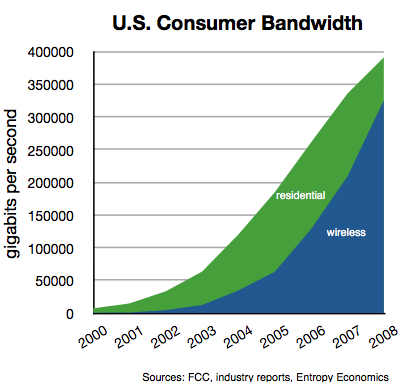As you’ve no doubt heard, Washington D.C. is angling for a takeover of the . . . U.S. telecom industry?!
That’s right: broadband, routers, switches, data centers, software apps, Web video, mobile phones, the Internet. As if its agenda weren’t full enough, the government is preparing a dramatic centralization of authority over our healthiest, most dynamic, high-growth industry.
Two weeks ago, FCC chairman Julius Genachowski proposed new “net neutrality” regulations, which he will detail on October 22. Then on Friday, Yochai Benkler of Harvard’s Berkman Center published an FCC-commissioned report on international broadband comparisons. The voluminous survey serves up data from around the world on broadband penetration rates, speeds, and prices. But the real purpose of the report is to make a single point: foreign “open access” broadband regulation, good; American broadband competition, bad. These two tracks — “net neutrality” and “open access,” combined with a review of the U.S. wireless industry and other investigations — lead straight to an unprecedented government intrusion of America’s vibrant Internet industry.
Benkler and his team of investigators can be commended for the effort that went into what was no doubt a substantial undertaking. The report, however,
- misses all kinds of important distinctions among national broadband markets, histories, and evolutions;
- uses lots of suspect data;
- underplays caveats and ignores some important statistical problems;
- focuses too much on some metrics, not enough on others;
- completely bungles America’s own broadband policy history; and
- draws broad and overly-certain policy conclusions about a still-young, dynamic, complex Internet ecosystem.
The gaping, jaw-dropping irony of the report was its failure even to mention the chief outcome of America’s previous open-access regime: the telecom/tech crash of 2000-02. We tried this before. And it didn’t work! The Great Telecom Crash of 2000-02 was the equivalent for that industry what the Great Panic of 2008 was to the financial industry. A deeply painful and historic plunge. In the case of the Great Telecom Crash, U.S. tech and telecom companies lost some $3 trillion in market value and one million jobs. The harsh open access policies (mandated network sharing, price controls) that Benkler lauds in his new report were a main culprit. But in Benkler’s 231-page report on open access policies, there is no mention of the Great Crash. (more…)


